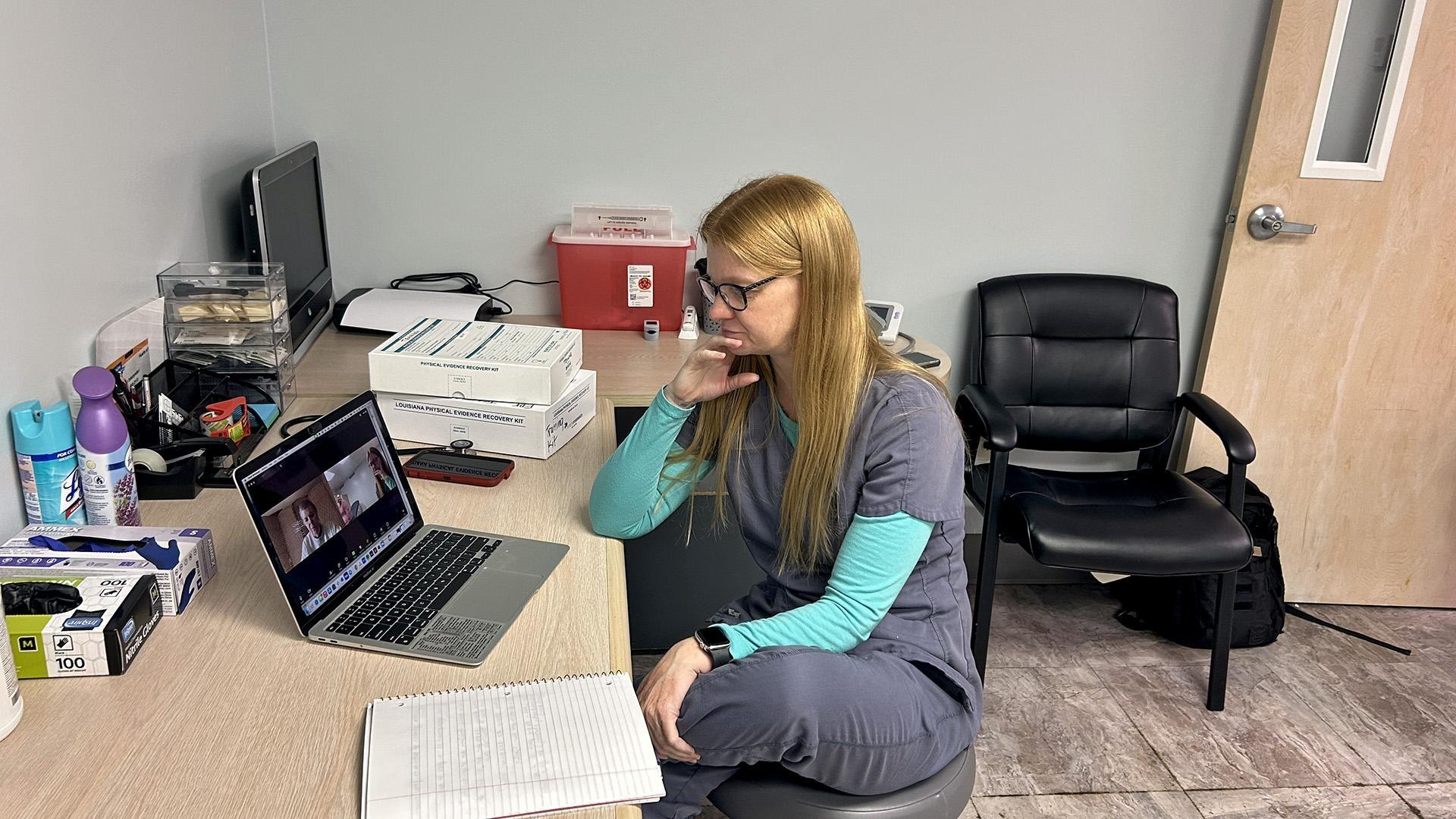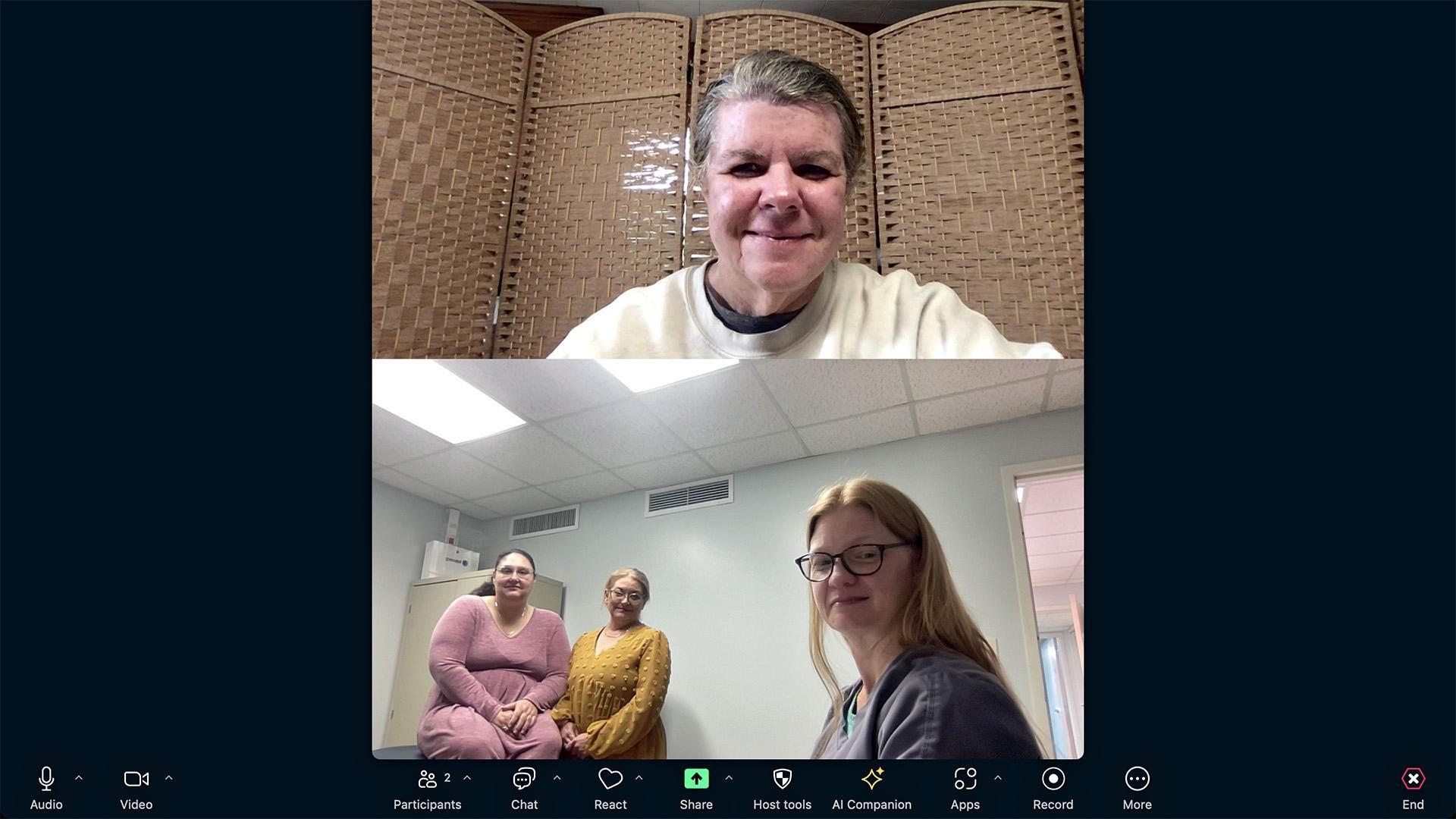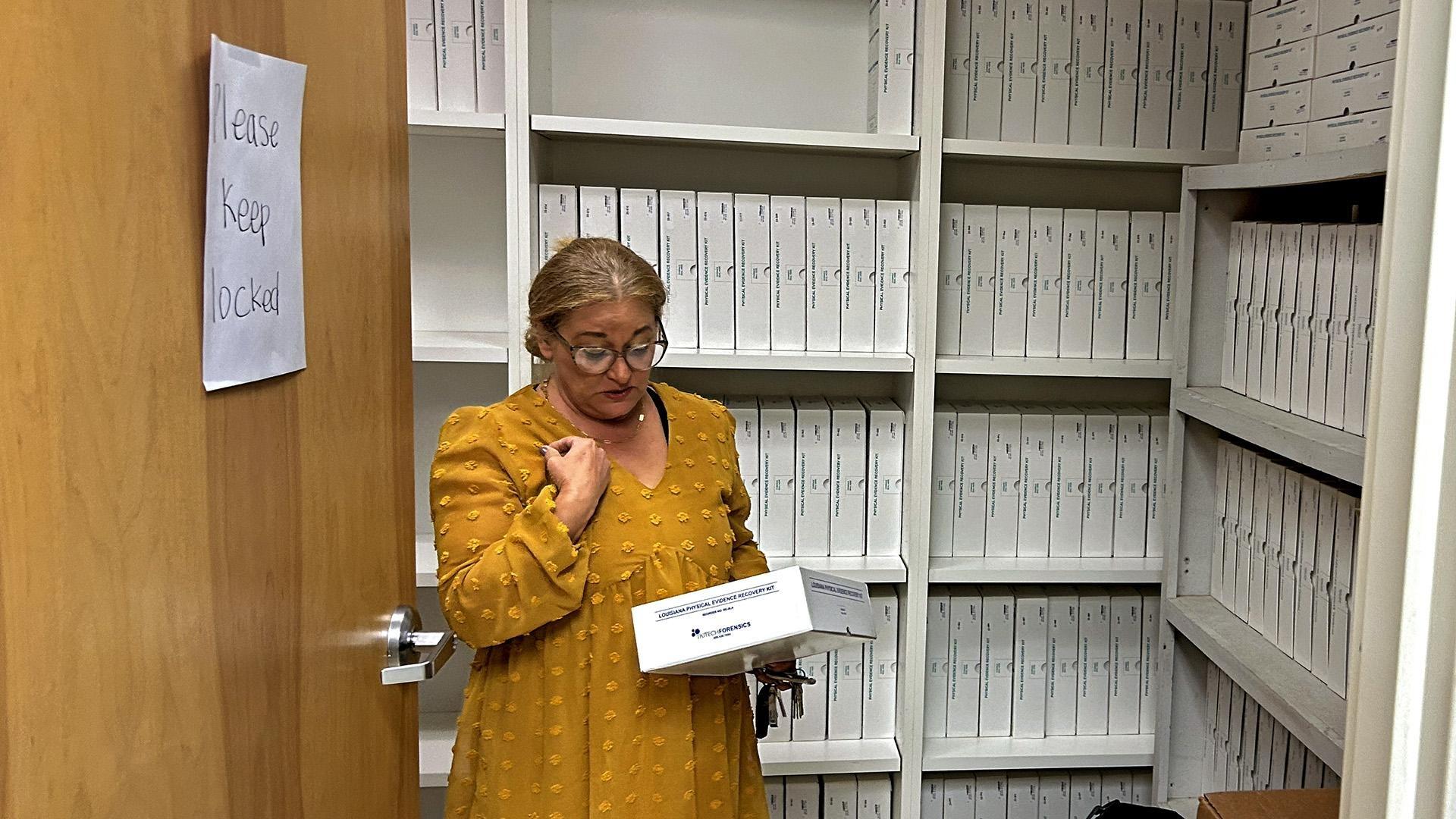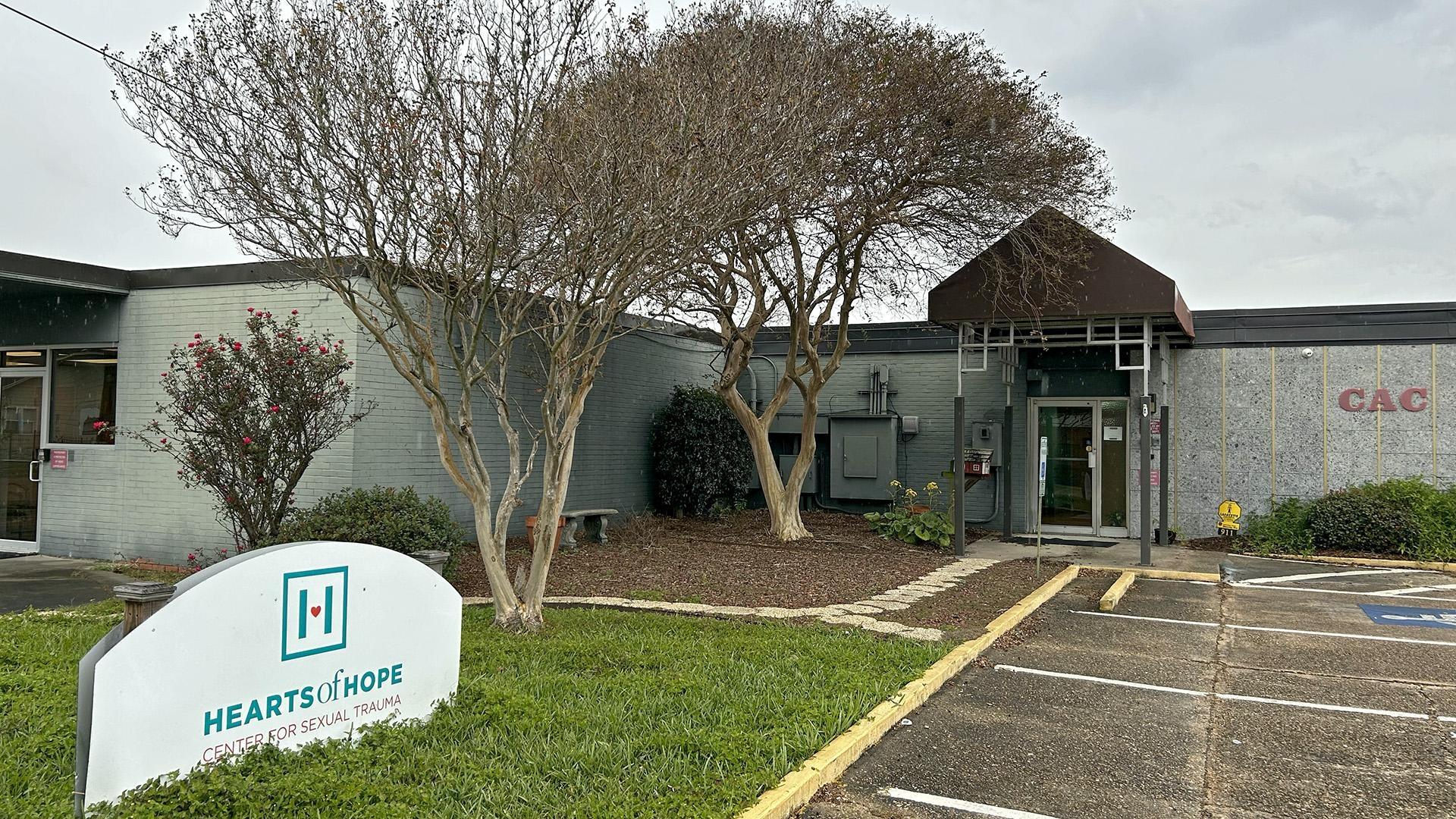Because of this lack of access, Young said many survivors may not get a forensic exam, which is also critical for potential prosecution. If a sexual assault case goes to trial, the evidence collected by a SANE can play a huge role. SANEs can also be qualified as experts and testify on the witness stand.
TeleSANEs, Young said, could expand access in the Gulf South, making it easier for sexual assault survivors to get trauma-informed care and improve the evidentiary collection these nurses provide. She pointed to Arkansas’ teleSANE program, which has been in place since 2019, as a potential model.
Currently, Arkansas has teleSANEs available in 27 facilities in the state. Before the program was started, the state only had four certified SANEs. Sherrie Searcy-Lyle, a SANE who helped launch the program, said they were able to convince hospitals to buy into the program and use existing telemedicine technology and infrastructure that was already in place for other programs, like telestroke — which allows providers to remotely examine and treat patients who have had a stroke.
Searcy-Lyle said Arkansas’ teleSANE program has made a “huge impact on patient outcomes,” ensuring that the patient has informed consent and is offered standards of care, including medications that have prophylactic care, STIs or pregnancy and ensuring that they are offered forensic evidence collection.
“I know that we've made an impact on making things happen for patients that would not have happened without teleSANE,” Searcy-Lyle said.
But not all nurses believe that telemedicine is the answer to the shortage of SANEs, like Michelle Mahon of National Nurses United (NNU), the nation’s largest nursing union.
TeleSANEs can be seen as a quick fix that fails to tackle the root issue of a shortage of working nurses, Mahon said. They are appealing to hospitals because they cost less than training, hiring more SANEs or building the kind of “human network” needed to bring back nurses who have left the profession.







